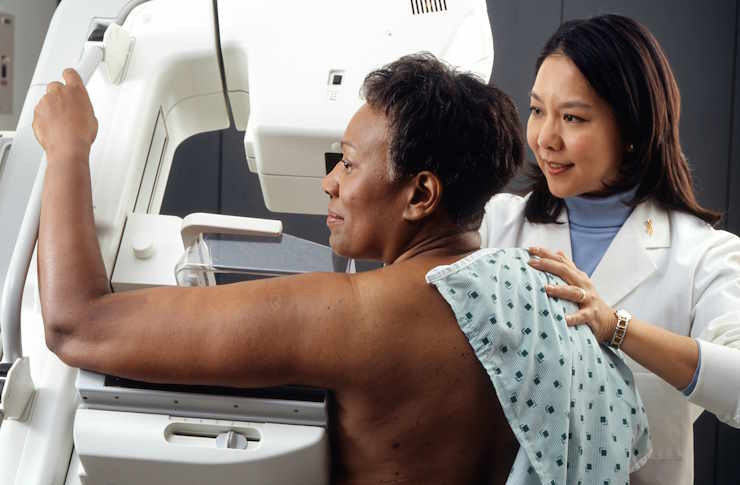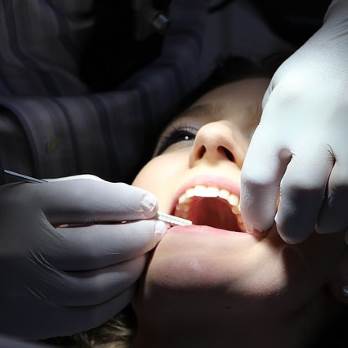Understanding Colon Cancer: Key Signs, Symptoms, and Risk Factors You Should Know
Colon cancer is one of the most common cancers, but early detection can make all the difference. In this guide, we’ll explore the key signs and symptoms of colon cancer, the risk factors that may increase your chances of developing the disease, and what steps you can take to reduce your risk. Knowing what to look for and staying informed can help with early detection and prevention. Read on to understand how to protect your health and when to seek medical attention.

Colon cancer, also known as colorectal cancer when it affects both the colon and rectum, develops when abnormal cells grow uncontrollably in the large intestine. Despite being the third most commonly diagnosed cancer globally, survival rates have improved significantly over recent decades due to better screening methods and treatment options. However, early detection remains crucial for successful outcomes, making awareness of symptoms and risk factors essential knowledge for everyone.
Signs and Symptoms of Colon Cancer
Many people with early-stage colon cancer experience no symptoms at all, which highlights the importance of regular screening. When symptoms do appear, they often vary depending on the tumor’s size and location within the colon. Common warning signs include:
- Changes in bowel habits lasting more than a few days, such as diarrhea, constipation, or narrowing of the stool
- Rectal bleeding or blood in the stool (which may appear bright red or very dark)
- Persistent abdominal discomfort, including cramps, gas, pain, or feeling that the bowel doesn’t empty completely
- Unexplained weight loss
- Weakness or fatigue
- Iron deficiency anemia (diagnosed by blood tests)
These symptoms can also be caused by conditions other than cancer, such as hemorrhoids, irritable bowel syndrome, or inflammatory bowel disease. However, persistent symptoms warrant medical attention to determine their cause.
Risk Factors for Colon Cancer
Understanding your risk profile can help determine when to begin screening and what lifestyle modifications might be beneficial. Risk factors for colon cancer include:
Age: The risk increases significantly after age 50, with more than 90% of cases diagnosed in people over 50. However, incidence rates among younger adults have been rising in recent years.
Family history: Having a first-degree relative (parent, sibling, or child) with colon cancer approximately doubles your risk. The risk increases further if multiple relatives have been affected or if cancers occurred at a young age.
Genetic syndromes: Certain inherited conditions significantly increase colon cancer risk, including Lynch syndrome (hereditary non-polyposis colorectal cancer) and familial adenomatous polyposis.
Personal medical history: Individuals with a personal history of colorectal cancer, adenomatous polyps, or inflammatory bowel diseases like Crohn’s disease or ulcerative colitis face elevated risks.
Lifestyle factors: Several modifiable risk factors have been identified, including: - Sedentary lifestyle - Low-fiber, high-fat diet rich in processed meats - Obesity - Smoking - Moderate to heavy alcohol consumption - Type 2 diabetes
Preventing Colon Cancer
While some risk factors cannot be changed, many preventive strategies can significantly reduce your likelihood of developing colon cancer:
Regular screening: Colonoscopy remains the gold standard for prevention, as it allows for both detection and removal of precancerous polyps. Current guidelines recommend screening beginning at age 45 for average-risk individuals, with earlier screening for those with elevated risk factors.
Dietary modifications: Adopting a diet rich in fruits, vegetables, and whole grains while limiting red and processed meats can lower risk. Studies suggest that fiber intake is particularly protective against colon cancer development.
Physical activity: Regular exercise appears to reduce colon cancer risk by up to 25%. Aim for at least 150 minutes of moderate activity or 75 minutes of vigorous activity weekly.
Weight management: Maintaining a healthy weight reduces inflammation and hormonal imbalances that may contribute to cancer development.
Limit alcohol and avoid smoking: Both habits have been linked to increased colorectal cancer risk, with the effects appearing to be dose-dependent.
Consider aspirin: For certain individuals at increased risk, regular low-dose aspirin may reduce colon cancer risk. However, this should only be undertaken after consultation with a healthcare provider, as aspirin carries risks of its own.
When to Seek Medical Attention
Knowing when to consult a healthcare provider about potential colon cancer symptoms can lead to earlier diagnosis and better outcomes. Consider seeking medical attention if you experience:
- Blood in your stool that persists for more than a few days
- Unexplained weight loss of 10 pounds or more
- Ongoing changes in bowel habits lasting more than two weeks
- Persistent abdominal pain or discomfort
- Unexplained iron-deficiency anemia
- Any concerning symptoms if you have a family history of colorectal cancer or polyps
Don’t delay seeking medical attention due to embarrassment or fear. Healthcare providers routinely evaluate these symptoms, and early detection significantly improves treatment outcomes. Remember that many people with colon cancer experience no symptoms in early stages, which underscores the importance of regular screening based on your age and risk factors.
For those with average risk, screening typically begins at age 45. However, individuals with family history or other risk factors may need to start screening earlier or undergo more frequent examinations. Screening options include colonoscopy, stool-based tests, and other imaging procedures, each with different recommendations for frequency.
Colon cancer remains one of the most preventable and treatable forms of cancer when detected early. By understanding the risk factors, recognizing potential symptoms, implementing preventive strategies, and following recommended screening guidelines, you can significantly reduce your risk and improve chances for early detection and successful treatment.
This article is for informational purposes only and should not be considered medical advice. Please consult a qualified healthcare professional for personalized guidance and treatment.




